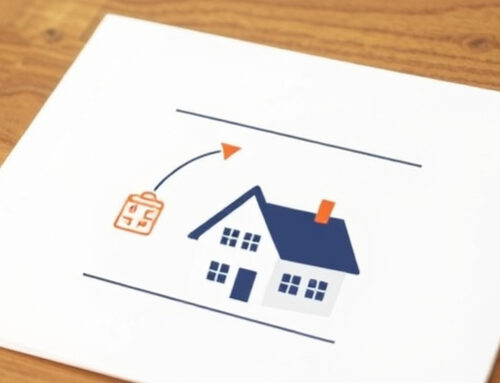As someone deeply involved in the world of commercial property investments, I’ve come to realize the intricate dance that is due diligence. It’s not just about crunching numbers or inspecting buildings; it’s a meticulous process that uncovers hidden truths and potential pitfalls.
The layers of financial analysis, legal scrutiny, and environmental assessments may seem straightforward on the surface, but what lies beneath is a tapestry of complexities waiting to be unraveled. Join me as we explore the intricacies of due diligence on commercial properties and uncover the secrets that shape investment decisions in this dynamic landscape.
Key Takeaways
- Financial analysis assesses investment potential and profitability.
- Property inspections evaluate physical condition and repair costs.
- Legal due diligence ensures compliance and identifies legal risks.
- Environmental assessments mitigate environmental liabilities and risks.
- Tenant lease review analyzes lease terms for stability and profitability.
Financial Analysis
When evaluating commercial properties, I conduct thorough financial analysis to assess their investment potential. This process involves examining the property’s income and expenses to determine its profitability. I review the rent roll to verify the current rental income and assess the stability of the tenants.
Additionally, I analyze the operating expenses, including maintenance, insurance, property taxes, and utilities, to understand the property’s overall financial health.
Calculating key financial metrics such as the capitalization rate, cash-on-cash return, and net operating income helps me gauge the property’s performance and compare it to similar properties in the market. I also scrutinize the historical financial data to identify any trends or red flags that may impact future returns.
Moreover, I assess the financing options available for the property and analyze how different loan terms and interest rates could affect the investment. By conducting an in-depth financial analysis, I can make informed decisions about the potential risks and rewards of investing in a commercial property.
Property Inspections
To gain a thorough understanding of a commercial property’s condition and potential risks, I prioritize conducting detailed property inspections. These inspections involve thoroughly examining the physical aspects of the property, including the building structure, electrical systems, plumbing, HVAC systems, and any other critical components. By inspecting the property, I can identify any existing issues, evaluate the overall condition, and estimate potential repair or maintenance costs. This information is vital for accurately evaluating the property’s value and determining its investment potential.
—
| Property Inspection Checklist | Description |
|---|---|
| Building Structure | Evaluating the integrity of the building’s foundation, walls, and roof. |
| Electrical Systems | Checking the functionality and safety of wiring, outlets, and electrical panels. |
| Plumbing | Inspecting pipes, fixtures, and drainage systems for leaks or damage. |
| HVAC Systems | Assessing the heating, ventilation, and air conditioning systems for efficiency. |
| Critical Components | Examining other key elements like elevators, fire safety systems, and security features. |
Ready to make informed decisions about your commercial property? If the due diligence process feels overwhelming, consider selling your property to Cash4Houses. We offer a quick, hassle-free cash sale, allowing you to bypass the complexities of traditional transactions. Get your cash offer today and focus on your next investment opportunity.
Legal Due Diligence
I prioritize conducting thorough legal due diligence to uncover any significant legal issues or liabilities associated with commercial properties. This involves examining property titles, deeds, zoning regulations, permits, leases, and any ongoing legal disputes. By carefully reviewing these documents, I aim to identify any existing or potential legal obstacles that could impact the property’s value or future use.
One important aspect of legal due diligence is verifying that the property complies with all relevant laws and regulations. This includes ensuring that the property has the necessary permits for its current use and that it meets zoning requirements. Additionally, I assess any existing leases to understand the responsibilities of both landlords and tenants, as well as any potential risks or obligations that may arise from these agreements.
In conducting legal due diligence, I also pay close attention to any pending litigation or regulatory issues that could affect the property. By thoroughly investigating the legal aspects of a commercial property, I can help mitigate risks and make informed decisions based on a clear understanding of the property’s legal standing.
Environmental Assessments
Conducting an environmental assessment is essential when evaluating commercial properties to identify potential environmental risks. It involves investigating the property’s history and current state to guarantee compliance with environmental regulations and to mitigate any potential liabilities. This process is critical in determining the property’s true value and safeguarding against unexpected costs or legal issues.
- Phase I Environmental Site Assessment: Initial evaluation to identify potential environmental concerns.
- Phase II Environmental Site Assessment: Further investigation through sampling and analysis to confirm the presence of any contaminants.
- Remediation Plans: Developing strategies to address and remediate any environmental issues found during assessments.
- Regulatory Compliance Verification: Ensuring the property complies with local, state, and federal environmental regulations.
- Risk Assessment: Evaluating the level of risk associated with potential environmental liabilities and their financial implications.
Tenant Lease Review
I’ll examine the lease terms thoroughly to understand the rights and obligations of both parties involved.
Verifying the occupancy details will guarantee that the property’s income stream aligns with the lease agreements in place.
This step is essential to assess the stability and profitability of the investment.
Lease Terms Analysis
Reviewing the lease terms of tenants is an essential step in analyzing commercial properties for due diligence. It provides significant insights into the financial stability and potential risks associated with the property.
Here are five key points to keep in mind when conducting a lease terms analysis:
- Lease Expiration Dates: Understanding when leases expire allows for better forecasting of potential vacancies and renegotiation opportunities.
- Rent Escalation Clauses: Examining how rent increases over time helps evaluate future income streams and overall profitability.
- Tenant Improvement Obligations: Reviewing tenant responsibilities for improvements and maintenance can impact cash flow and property value.
- Sublease Provisions: Analyzing rules around subleasing provides insight into tenant relationships and potential revenue diversification.
- Renewal Options: Assessing tenant renewal options can impact long-term stability and investment returns.
Careful scrutiny of these lease terms can uncover hidden risks or opportunities that may impact the overall investment decision.
Occupancy Verification
When checking tenant leases during due diligence on commercial properties, verifying occupancy is essential to ensuring an accurate understanding of current tenant presence and potential risks. Conducting a thorough review of lease agreements allows for the confirmation of the number of occupied units, leased square footage, and the duration of leases in place. This process helps identify any discrepancies between the lease terms and actual occupancy, flagging potential issues such as unauthorized subleasing or vacancies not reflected in the documentation.
Moreover, analyzing occupancy rates in relation to market trends can provide valuable insights into the property’s performance and leasing prospects. Understanding the current tenant mix and their respective lease obligations is vital for evaluating income stability and predicting future cash flows.
Market Analysis
I’ll evaluate market trends to understand the current state of the commercial property market.
By examining the competitive landscape, I can identify key players and potential challenges.
This analysis will provide valuable insights for making informed decisions during the due diligence process.
Market Trends Analysis
Understanding market trends is essential when conducting due diligence on commercial properties, as it provides valuable insights into the current and future performance of the property. By analyzing market trends, I can better assess the risks and opportunities associated with the investment.
Here are some key aspects to take into account:
- Supply and Demand Dynamics: Understanding the balance between supply and demand in the market helps predict future property value fluctuations.
- Economic Indicators: Monitoring economic indicators such as GDP growth, employment rates, and inflation can provide valuable insights into the overall health of the market.
- Interest Rates: Fluctuations in interest rates can impact borrowing costs and, consequently, property valuations.
- Demographic Shifts: Changes in demographics, such as population growth or shifts in age groups, can influence the demand for different types of commercial properties.
- Technological Advancements: Keeping abreast of technological developments impacting the market can help anticipate future trends and tenant preferences.
Competitive Landscape Assessment
Analyzing the competitive landscape is essential to evaluating the market dynamics and positioning of commercial properties in relation to their peers. By conducting a competitive landscape assessment, I gain valuable insights into the current market conditions, including factors like supply and demand, pricing trends, and the presence of competing properties.
This analysis allows me to identify the strengths and weaknesses of the subject property compared to similar offerings in the market.
During this assessment, I focus on understanding the competitive advantages that the property may have, such as unique amenities or strategic location, as well as any potential drawbacks that could impact its marketability. By examining the competitive landscape, I can also uncover opportunities for differentiation and potential threats that may affect the property’s performance in the market.
Ultimately, a thorough competitive landscape assessment provides me with the knowledge needed to make informed decisions about the commercial property, guiding my overall due diligence process and helping me assess its investment potential.
Physical Condition Assessment
Evaluating the physical condition of a commercial property is paramount in determining its overall investment potential. Conducting a thorough physical evaluation allows investors to identify any existing issues or potential risks that could impact the property’s value or require substantial financial investment in the future.
- Structural Integrity: Examining the structural components of the building, such as the foundation, walls, and roof, to confirm they’re sound and free of significant defects.
- Mechanical Systems: Reviewing the functionality and condition of HVAC systems, plumbing, electrical wiring, and other essential mechanical systems.
- Exterior Condition: Inspecting the exterior of the property for signs of damage, wear and tear, or the need for maintenance or repairs.
- Interior Finishes: Scrutinizing the interior finishes, including walls, flooring, ceilings, and fixtures, to determine their condition and potential for upgrades.
- Environmental Concerns: Identifying any environmental hazards or concerns, such as asbestos, mold, lead-based paint, or other contaminants that may pose health risks or require remediation.
Title Search
Conducting a thorough title search is essential when evaluating the legal ownership and potential encumbrances of a commercial property. During this process, I investigate public records to trace the chain of ownership, ensuring there are no undisclosed claims or liens that could jeopardize the transaction. By scrutinizing deeds, mortgages, and any recorded easements, I aim to verify the seller’s right to transfer ownership and identify any restrictions that may affect future development plans.
Furthermore, a title search helps me uncover issues such as unpaid taxes, outstanding judgments, or pending lawsuits that could impact the property’s marketability or value. This detailed examination provides me with a deep understanding of the property’s history and any legal constraints that may influence my decision-making process.
Essentially, a diligent title search is a critical component of due diligence, offering protection and peace of mind to potential buyers or investors in the field of commercial real estate.
Conclusion
To sum up, were you aware that 80% of commercial real estate investors believe that conducting thorough due diligence is essential for successful investments?
By carefully analyzing financial, legal, environmental, and physical aspects of a property, investors can make informed decisions and mitigate risks.
Remember, due diligence is vital for realizing the potential of commercial properties and maximizing returns.
Frequently Asked Questions
What Are the Zoning Restrictions on the Property?
I’ll examine the zoning restrictions on the property. It’s essential to understand any limitations or requirements set by local regulations. This step guarantees compliance and helps evaluate the property’s potential uses and value.
Are There Any Upcoming Infrastructure Projects in the Area?
Yes, there are upcoming infrastructure projects in the area. The city council recently approved a new highway construction plan. It’s expected to enhance connectivity and drive economic growth, making the location more attractive for commercial development.
Has the Property Ever Been Involved in a Lawsuit?
Certainly, the property has been involved in a lawsuit. It’s essential to dive deep into the details. Lawsuits can reveal potential risks and impact future investments. Due diligence is key to making informed decisions.
Are There Any Planned Developments Nearby?
Yes, there are planned developments nearby. I will gather information on these projects to assess their potential impact on the property and its value. Understanding future changes in the area is essential.
What Is the Historical Performance of the Property’s Management Team?
I’ve reviewed the historical performance of the property’s management team. They’ve consistently demonstrated strong leadership, effective decision-making, and financial acumen. Their track record aligns well with the property’s success and future potential.







